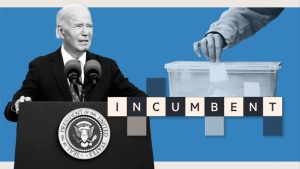Economics can’t explain all the anger of voters

Unlock the Editor’s Digest for free
Roula Khalaf, Editor of the FT, selects her favourite stories in this weekly newsletter.
Except for the most tiresome pedants, who celebrated the millennium on January 1 2001 rather than 2000, we are nearing the quarter-point of our century. What are the surprises so far? What would people have found hard to believe 25 years ago? That Russia, which struggled to pay its pensioners back then, would become a revanchist war machine. That Islamist terrorism would announce itself one September morning as a force that would dog the rest of our lives, and then largely fail to do so.
Here’s another. The US would outclass Europe in economic growth, and be no happier for it. If people ultimately vote on their material experience — a common sense thing to suppose — America should have much stabler politics than Europe, including Britain. Instead, it has about the same amount of anti-establishment populism, if not more.
How odd. Perhaps what voters do is compare their economic experience with that of their own forebears, not with that of contemporaries in other countries. The data that matters is longitudinal, then, not latitudinal. But this doesn’t leave the economics-is-politics argument looking much stronger. Consider Ireland or Poland. Each nation has seen non-mainstream parties grow in clout over recent decades. And each has done so despite growing unrecognisably richer.
In the 1980s, Sinn Féin won 1 or 2 per cent of the vote in Irish general elections. In the noughties, this went up to around 6. Though it didn’t break through, the party scored 19 per cent in last month’s election. Over the same period, the Irish economy flowered, from one of the poorest in Europe to one of the richest, from a place of emigration to one to which people flock. How does an economic determinist account for this? What is the materialist explanation here?
Let me anticipate one: that general enrichment can mask, or even create, particular hardships. Higher housing costs for the young, to take one example. But this is so much statistical cherry-picking. In all economies at all times, there are sectoral problems to be cited. If economic determinism is to be serious, it has to be falsifiable. It has to reckon with the fact that Ireland, despite a savage crash in 2008, is richer than it was a couple of generations ago, and to little obvious glory for the established political order that oversaw most of that success.
Other facts have to be faced. Donald Trump got elected in a high-inflation context (2024). But also in a low-inflation one (2016). Populists thrive in free markets with huge income disparities (the US). But also in social democracies (France). In the Britain of 2016, dispossessed young people voted for the status quo of Remain while the asset-owning old chose the rupture of Leave. Greece, which had a scarring economic experience in the last decade, and an excuse to turn to the fringes, has a prime minister who is the toast of international moderates. Italy, which underwent less structural reform, has a populist. Not only is there no faithful correlation between economic circumstances and political choices, there isn’t even a useful line of best fit.
If not just economics, then, what is bugging voters? Immigration, in large part. But even this isn’t a clincher. Why hasn’t populism taken off in high-immigration Australia? (There, perhaps, economics does explain a lot.) The strength of the hard right in France seems out of line with the size of the foreign-born population there, which isn’t exceptional by western European standards.
Another explanation for what is going on is “hedonic adjustment”. As incomes rise, so do expectations. Voters become quicker to revolt. In other words, economics is decisive, but not how you’d imagine.
Either way, the story of the US in this century should be chastening for those who see politics as downstream of economics. Plainly, it is possible to grow at fantastic speed, to build the mightiest companies on Earth from scratch — and to have Tulsi Gabbard poised for major public office. Economic determinism is soothing because there is a textbook answer to every problem: grow your way out of it. Invest. This was Joe Biden-ism. In fact, it is much of western liberalism. There is impeccable common sense to it, but also an intellectual ponderousness. Conservatives have been quicker to intuit that stranger forces than material interest are at work in the world, and to master them.
It is hard to write this column without being mistaken for an outright growth-sceptic, liable to quote Robert Kennedy’s slightly high-school valedictorian speech about all the things that GDP doesn’t measure. (“The strength of our marriages.”) Just to stipulate, then, I’m a growth zealot. I want 20mn Londoners, not 10mn. But the case for growth must be that it is good in and of itself, that more stuff for more people is intrinsically worthwhile, that romanticising the pre-industrial world is imbecilic tweeness. The argument is not that growth leads to healthier politics. If the evidence ever supported that axiom, it is foggier now.
In fact, the causal link between economic performance and political outcomes has broken down in both directions. Not only can a nation have a thriving economy to no obvious benefit to its politics, it can sustain awful politics without incurring economic damage. At this time of year, we are asked to reflect on all the things in life that money can’t buy. To “love” and “class”, add civic sanity.
#Economics #explain #anger #voters





